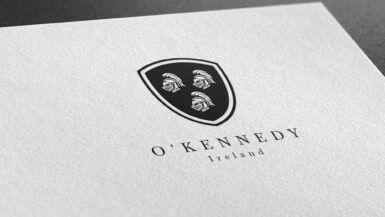Origin of the Surname
The name Alexander, while of Greek origin, has been adopted and anglicized in many countries, including Ireland. Its original Greek form, “Alexandros”, is composed of the elements “alexein” (to defend) and “aner” (man). In essence, it means “Defender of Men”.
Etymology and Meaning
The surname Alexander is derived from the famous historical figure, Alexander the Great of Macedon, who in his conquests spread his name throughout the ancient world. The name signifies “defender”, “warrior”, or “protector”, which is apt considering the accomplishments of its most famous bearer.
Earliest Known Usage
While the first name Alexander was popularized in Europe due to Alexander the Great, its usage as a surname likely began in Scotland. In Ireland, it was introduced by Scottish settlers, particularly in the northern region of Ulster. Over time, many of these Alexanders became integrated into Irish society, adopting local customs and sometimes intermarrying with native Irish families.
Geographic Distribution
Historically, in Ireland, the Alexander surname was predominantly found in the Ulster region, specifically in counties Antrim and Tyrone. This is primarily because of the Scots-Irish or Ulster-Scots connections between northern Ireland and Scotland.
Original Geographic Location
While the name’s roots can be traced back to Greece, as a surname, its origin is predominantly Scottish. As such, the Alexanders of Ireland often trace their heritage back to Scotland, especially from areas like Stirling and Menstrie.
Migration Patterns
The Plantation of Ulster in the early 17th century saw many Scottish families, including the Alexanders, settling in northern Ireland. Over time, economic and political pressures, as well as the allure of opportunities in the New World, led many Alexanders to migrate to places like North America, Australia, and New Zealand.
Historical Context
Notable Historical Events
Many bearers of the Alexander surname in Ireland were involved in significant events, both locally in Ulster and on a national scale. Some were key players in the Protestant ascendancy in the 18th century, while others played roles in the various uprisings and struggles that Ireland faced over the centuries.
Involvement in Key Moments in History
Alexanders in Ireland, like many families, were divided during pivotal moments like the Irish War of Independence and the subsequent Civil War. They had a range of affiliations, from staunch unionists to ardent nationalists.
Notable Irish Bearers of the Surname
Famous Individuals
- Nathaniel Alexander – Born in County Donegal, he emigrated to America and eventually became the Governor of North Carolina in the early 19th century.
Influential Figures
Many Alexanders, particularly in the 18th and 19th centuries, were prominent in the fields of business, politics, and religion in Ireland. Their influence was especially felt in Ulster’s Protestant community.
Variations of the Surname
Spelling Variations
While “Alexander” is the most common form, variations such as “Alisandre” or “Alesander” have been found in historical records, especially in the medieval period.
Regional Differences
In Ireland, the name has been Gaelicized in some areas, with versions like “Alasdair” appearing in regions with strong Irish-speaking communities.
Current Statistics and Distribution
Frequency and Global Distribution
Today, the Alexander surname is found worldwide due to migration patterns over the centuries. In Ireland, the name remains prevalent in Ulster but can also be found throughout the island.
Changes Over Time
While initially concentrated in Ulster due to the Scottish connection, the name’s distribution within Ireland has broadened over the years, reflecting internal migration patterns and other socio-economic factors.
Family Coat of Arms
The Alexander family coat of arms, stemming from its Scottish roots, typically displays a silver shield with a black diagonal stripe, accompanied by three black crescents. The motto “Per Mare” (By Sea) often appears, reflecting perhaps the maritime prowess or aspirations of the family’s ancestors.





Leave a reply